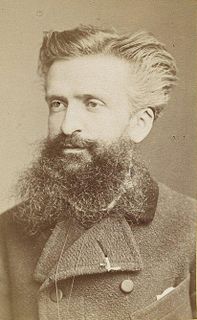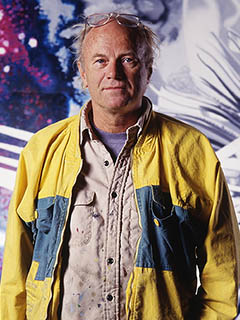A Quote by Carl Jung
It is my mind, with its store of images, that gives the world color and sound; and that supremely real and rational certainty which I can "experience" is, in its most simple form, an exceedingly complicated structure of mental images. Thus there is, in a certain sense, nothing that is directly experienced except the mind itself. Everything is mediated through the mind, translated, filtered, allegorized, twisted, even falsified by it. We are . . . enveloped in a cloud of changing and endlessly shifting images.
Quote Topics
Related Quotes
It is my mind, with its store of images, that gives the world colour and sound; and that supremely real and rational certainty which I call "experience" is, in its most simple form, an exceedingly complicated structure of mental images. Thus there is, in a certain sense, nothing that is directly experienced except the mind itself. Everything is mediated through the mind.
A crowd thinks in images, and the image itself calls up a series of other images, having no logical connection with the first...A crowd scarcely distinguishes between the subjective and the objective. It accepts as real the images invoked in its mind, though they most often have only a very distant relation with the observed facts....Crowds being only capable of thinking in images are only to be impressed by images.
Philiosophers like Hume and Descartes and Hobbes saw things similarly. They thought that mental images and ideas were actually the same thing. There are those today that dispute that, and lots of debates about how the mind works, but for me it's simple: Mental images, for most of us, are central in inventive and creative thinking.
In societies where modern conditions of productions prevail, all of life presents itself as an immense accumulation of spectacles. Everything that was directly lived has moved away into representation. The images detached from every aspect of life fuse in a common stream in which the unity of this life can no longer be re-established. Reality considered partially unfolds, in its own general unity as a pseudo-world apart, an object of mere contemplation . . . The spectacle is not a collection of images, but a social relation among people, mediated by images.
You can indeed be aware of your body, but you can also be aware of your mind - you can right now notice all the thoughts and ideas and images floating in front of the mind's inward eye. You can, in other words, experience your mind, be aware of your mind. And it's very important to experience your mind directly, cleanly, intensely, because only by bringing awareness to the mind can you begin to transcend the mind and be free of its limitations.
The power of understanding symbols, i.e. of regarding everything about a sense-datum as irrelevant except a certain form that it embodies, is the most characteristic mental trait of mankind. It issues in an unconscious, spontaneous process of abstraction, which goes on all the time in the human mind: a process of recognizing the concept in any configuration given to experience, and forming a conception accordingly. That is the real sense of Aristotle's definition of Man as "the rational animal".
What Warcollier demonstrated is compatible with what modern cognitive neuroscience has learned about how visual images are constructed by the brain. It implies that telepathic perceptions bubble up into awareness from the unconscious and are probably processed in the brain in the same way that we generate images in dreams. And thus telepathic “images” are far less certain than sensory-driven images and subject to distortion.
I am myself a professional creator of images, a film-maker. And then there are the images made by the artists I collect, and I have noticed that the images I create are not so very different from theirs. Such images seem to suggest how I feel about being here, on this planet. And maybe that is why it is so exciting to live with images created by other people, images that either conflict with one's own or demonstrate similarities to them.
Knowing a great deal about what is in the world art, catastrophe, the beauties of nature through photographic images, people are frequently disappointed, surprised, unmoved when the see the real thing. For photographic images tend to subtract feeling from something we experience at first hand and the feelings they do arouse are, largely, not those we have in real life. Often something disturbs us more in photographed form than it does when we actually experience it.



































